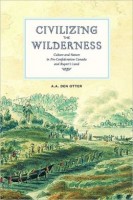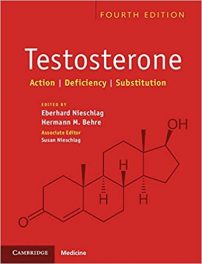 Author: A.A. den Otter
Author: A.A. den Otter
Publisher: University of Alberta Press – 438 pages
Book Review by: Paiso Jamakar
A.A. den Otter presents in this book the views of different people through history on how they understood and defined the words ‘civilization’ and ‘wilderness’ particularly in relation to Canada, but also the United States.
Basically most of these people viewed ‘civilization’ as a positive value, but some, who were witnessing specific actions, viewed it as a negative and even undesirable expectation characterizing it as ‘exploitation’ of natural resources as well as displacement of the natives from the lands where they used to live.
Most of those who viewed ‘civilization’ as a positive and desirable value also thought of ‘wilderness’ as its opposite. Civilization and wilderness were viewed as being on opposite poles.
They perceived wilderness – the lands and natural resources out there – as chaotic and disorderly. And they thought of the natives living on those lands as primitive and savage. These people believed it was their duty to bring about civilization – basically infrastructure in the form of towns and cities – as well as education to the natives.
But Den Otter points out that there existed very much nuanced meanings of these words in the minds of people, and what one heard from them depended on who you asked. He writes: “Despite their commonly perceived polarity, civilization and wilderness encompass a whole spectrum of meanings. Depending on his or her world and life views, an observer may see civilization or wilderness entirely differently than someone else.” And this is also true today as it was in mid-nineteenth century Britain and British North America.
The author points out to one major force that spurred the economic development of Canada (which was known previously as ‘Rupert’s Land’: it was the desire of non-native or non-aboriginal people from Europe and elsewhere to settle there. The influx of these settlers was made easier with the construction of a railway network.
Den Otter writes that it was John Travers Lewis, the Lord Bishop of Ontario, who articulated what many people believed to constitute the main elements of civilization. We mention them below, not necessarily in historical order, or in any order of importance, but just alphabetically:
- Capitalist system
- Education
- Etiquette
- Knowledge
- Literature
- Justice system
- Representative government
- Science and technology
- Social structure
The civilizing of Canada that began in the nineteenth was not only of the aborigines but also the land mass and its natural resources: “Not only were the savage inhabitants of the wilderness to be brought into the embrace of civilization, the wild landscape itself had to be civilized: that is, it had to be transformed into the genteel, developed country of Britain. The wilderness itself has to be civilized,” the author thus describes the process.
This is a useful and informative book for those interested in the environmental development of North America in general and Canada in particular, as well as those who study the history of Canadian natives and immigration.
A.A. den Otter is Professor Emeritus of History at Memorial University, where he taught in the Department of History from 1972 to 2007 and served as department head from 1988 to 1994. His Civilizing the West: The Galts and the Development of Western Canada received the Canadian Historical Association’s Regional History Certificate of Merit and his The Philosophy of Railway: The Transcontinental Railway Idea in British North America was awarded the CFHSS Harold Adams Innis Prize. H lives in St. John’s, Newfoundland.







